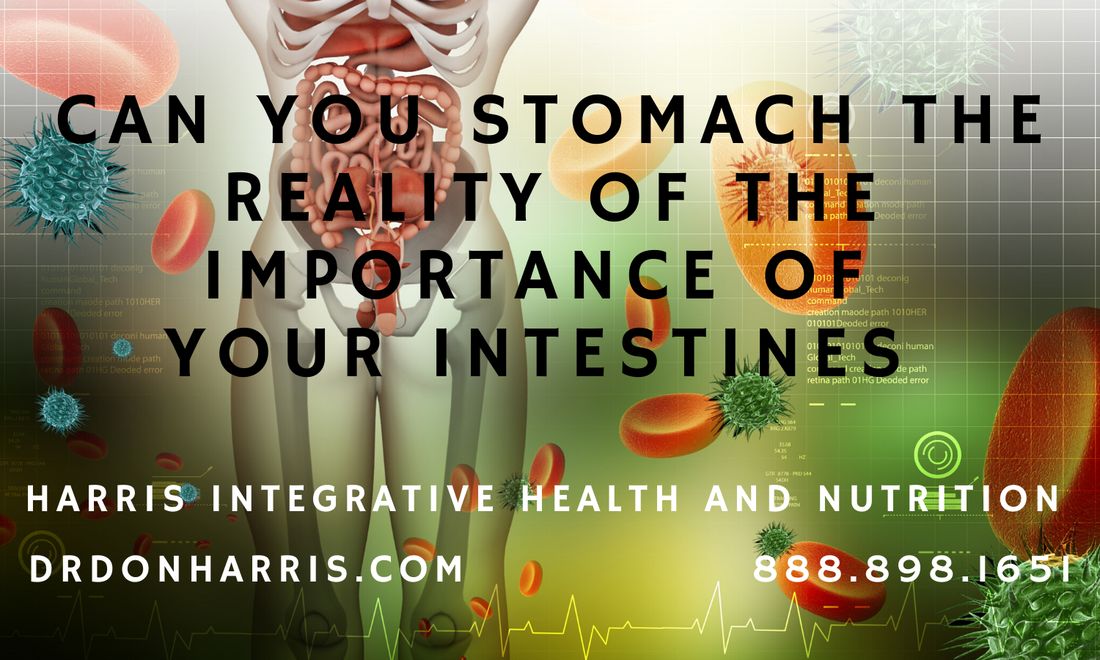|
Our gut microbiome is our most important human organ. This complex ecosystem of bacteria, viruses, fungi, archaea, and bacteriophages has been called the conductor of the immune-neuroendocrine system, home of the immune system, and even the second brain. In fact, the gut microbiome’s role in human biology is so widespread that scientists from nearly every specialty are checking for potential health solutions within the gut. With chronic diseases on the rise across the world, the gut microbiome is now front and center in this epidemic.
It’s Time To Redefine Our Relationship With Bacteria. Our relationship with bacteria is a complicated one. While most bacteria that live in and on us work in harmony, we only ever seem to hear about bacteria when they cause a devastating outbreak. From the bubonic plague, which is caused by the Yersinia pestis bacteria, to food recalls caused by various Salmonella strains, history is full of occurrences where bacteria have wreaked havoc and caused widespread fear. Even today, antibiotic-resistant bacterial strains like MRSA and CRE (ominously known as “nightmare bacteria”), continue to perplex doctors and researchers. These terrifying scenarios have contributed to the widespread belief that all bacteria are harmful, and fueled our all-out war against microorganisms ever since the discovery of penicillin in 1929. However, mounting research suggests that more often than not, bacteria contribute to our health in positive ways. Scientists now sound the alarm to reexamine our conventional views on bacteria. Not only are these microbes critical to our survival, but they also influence everything from shaping our body to affecting our mood. As Martin J. Blaser, professor of microbiology and director of the Human Microbiome Program at the New York University School of Medicine, put it, “The composition of the microbiome and its activities are involved in most, if not all, of the biological processes that constitute human health and disease.” Why Your Gut Microbiome Matters? Every one of us is covered in microbes with the gut being the richest source. The microorganisms in and on our bodies weigh between two to six pounds, making them heavier than the brain. We each have multiple microbiomes in our eyes, mouth, nose, skin, and if you are a female, also in the vagina. Starting at birth, you are bathed in your mother’s microbiome as you exit her birth canal, which is where you begin building your microbiome. During the first seven years of your life, what you eat and what you come in contact with continues to develop your microbiome. Though your microbiome continues to shift throughout your life, scientists believe that you maintain a microbial signature, or a “fingerprint,” which is most similar to your mother’s. How Your Gut Microbiome Affects Your Digestion? The microorganisms living in your gut help you extract and synthesize many nutrients and byproducts that you wouldn’t otherwise be able to obtain from your food. These microbes: · Digest your food · Create important neurotransmitters · Synthesize vitamins · Produce essential nutrients · Use food to create health-boosting byproducts like short-chain fatty acids We once thought these polysaccharides, oligosaccharides, and other carbohydrates were completely indigestible. But it turns out our microbes break these down and ferment them into beneficial short-chain fatty acids such as butyrate, propionate, and acetate. Short-chain fatty acids help protect against obesity, insulin resistance, and are anti-inflammatory. Due to the disease-fighting power of these fatty acids, Viome’s personalized recommendations aim to support bacteria known to be the highest producers. Our microbes also heavily regulate how much energy we can extract, store, and use from our food. So much so, that scientists believe our weight may have much more to do with what microorganisms are in our guts than how much we eat. How Your Gut Microbiome Affects Your Immune System? The gut microbiome teaches the immune system the difference between friend and foe, making it an integral part of how well immunity functions. In fact, the gut is the home of 70- 80% of our immune system. This interwoven relationship and constant communication between the gut microbiome and the immune system is the primary reason researchers search for cures to all sorts of illnesses by focusing on the gut. An imbalance of gut microbiota, known as dysbiosis, can contribute to an increased weakness of the gut lining, which is more commonly called ‘leaky gut.’ When there are gaps in the gut lining, toxins, bacteria, and food particles can leak into the bloodstream and cause widespread inflammation throughout the body. This process has been implicated in: · Autoimmune conditions · Heart disease · Alzheimer’s · Parkinsons · Allergies · Cancer · Asthma · Obesity · Type 2 diabetes How Your Microbiome Affects Your Hormones? The gut microbiome is so essential in hormonal regulation and balance, it’s now considered part of the endocrine system. Similar to an orchestra playing a harmonious symphony, hormones circulate throughout the body in delicate rhythms, keeping numerous body systems in order. The gut microbiome acts as a conductor for the symphony, making sure everything plays in tune and on time. When your gut microbiome is out of harmony, it can throw off your hormones and cause a variety of health issues ranging from weight gain to thyroid dysfunction. How Your Gut Microbiome Affects Your Mental Health/ Everyone has experienced the feeling of ‘butterflies” in their stomach at some point in their lives. That feeling isn’t merely a sensation, it’s your gut communicating with your brain. The gut-brain connection is constant and even has its designated line of communication, the vagus nerve. In fact, the biggest producer of your happy neurotransmitter, serotonin, isn’t the brain—it’s your gut microbiome, which produces over 90 percent. Changes in the gut microbiome are linked to the mind on many levels including: · Your mood · Your happiness · Your pain tolerance · Your cognitive performance · Your behavior · Your mental health The gut-brain connection is so strong that one of the fastest growing areas of neuroscience looks at the gut first. How Your Gut Microbiome Affects Your Skin? Beauty truly comes from the inside out. The gut microbiome plays a direct role in the appearance of your skin through influencing: · Inflammation—the underlying cause of most diseases · Oxidative stress—a significant cause of inflammation · Tissue lipid levels—an essential factor for a healthy metabolism · Glycemic control—your ability to balance blood sugar · Neuropeptide levels—a factor linked to your mood, pain tolerance, and body’s homeostasis· · Opportunistic bacteria, harmful bacteria that can cause conditions when it overgrows When it comes to autoimmune skin conditions such as eczema, rosacea, and psoriasis, the gut is known to be a major driver behind the worsening of these conditions. The gut’s fundamental role in skin health is why so many creams and lotions are a waste of money. How Your Microbiome Affects Your Heart? Could the gut microbiome be a predictor of heart disease? Researchers from the University of Cambridge seem to think so. They found that specific metabolites, such as trimethylamine N-oxide (TMAO), could be a good indicator of heart disease risk. High levels of TMAO in the body occur when bacteria convert choline into trimethylamine (TMA), which is then absorbed by the body and converted to the harmful version, TMAO. Choline (one of the B-complex vitamins) is found in many animal products and legumes, which might make you want to cut back on these foods. However, the initial part of this conversion from choline to TMA, only occurs when you have certain bacteria in your microbiome. For example, if you have high levels of gammaproteobacteria, which are known for this conversion, it’s more likely that high choline foods are contributing to your heart problems. Everyone knows someone diagnosed with a chronic illness, diabetes, or an autoimmune disease. Moreover, we know that once treatment begins, it can often be too late. |
Archives
April 2022
Categories
All
|




 RSS Feed
RSS Feed